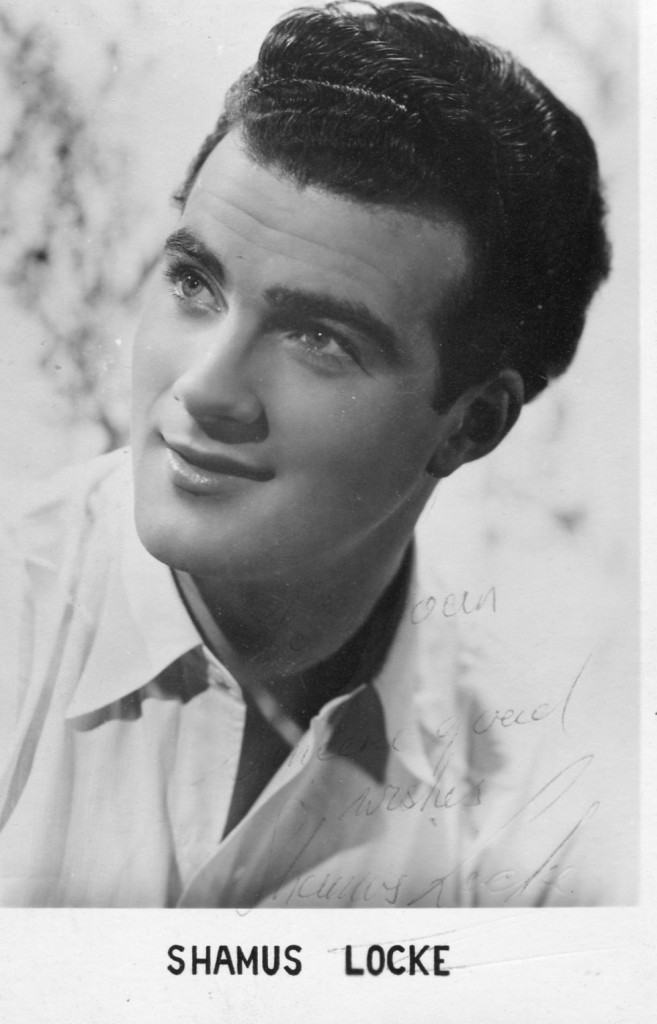
Shamus Locke was born on February 3, 1924 in Navan, Co. Meath, Ireland. He was an actor, known for It’s Alive (1974), Hungry Hill (1947) and The Strangers Came (1949). He died on September 30, 2003 in Rancho Santa Fe, California, USA.


Brittish Actors

Shamus Locke was born on February 3, 1924 in Navan, Co. Meath, Ireland. He was an actor, known for It’s Alive (1974), Hungry Hill (1947) and The Strangers Came (1949). He died on September 30, 2003 in Rancho Santa Fe, California, USA.



TCM overview:
After a decade on the UK stage, actor Rhys Ifans was propelled into the mainstream with his scene-stealing performance as the unkempt and uninhibited roommate of Hugh Grant in the blockbuster “Notting Hill” (1999). Having provided 90 percent of the romantic comedy’s more hilarious moments, Ifans’ big personality was snapped up for a few more Hollywood supporting roles in the Adam Sandler comedy “Little Nicky” (2000), Lasse Hallstrom’s adaptation of the novel “The Shipping News” (2001), and the thriller “Hannibal Rising” (2007). However, the Welsh actor remained better known overseas, where he was associated with a group of similarly-aged hip London actors including Jude Law and Ewan McGregor; all three being collectively known as the Primrose Hill set. Ifans earned a BAFTA TV Award for his portrayal of English comedian Peter Cook in the biopic “Not Only but Always” (Channel 4, 2004), and was steadily recognized for his assortment of slightly damaged common men and mischievous dreamers in films like “Dancing at Lughnasa” (1998), “Danny Deckchair” (2004) and Richard Curtis’ “Pirate Radio” (2009). With his remarkable ability to become unrecognizable and a versatility that could channel sensitivity or unbridled swagger with equal flair, Ifans laid out a path for a long career as a valuable, quirky screen player.
Born July 27, 1968, Ifans was raised in a Welsh-speaking home in Northern Wales by parents who were primary school teachers. He was drawn to performing at an early age, captivated by the building of the regional Theater Clywd and the touring actors he saw come and go. He became active with youth theater programs and made his stage debut playing a rat in “Toad of Toad Hall,” before going on to dramatic training at Guildhall School of Music and Drama in London. The bilingual actor amassed theater credits in London and Wales including “Hamlet” and “As You Like It,” and in 1990 was cast as the host of a children’s quiz show on Welsh television. During the early 1990s, Ifans also performed with the Welsh rock band Super Furry Animals. In 1994 he made a mark on London’s West End in a production of “Beautiful Thing,” playing the laid back and likable young companion of an older woman whose teenaged son is coming of age. Ifans’ early film appearances included “Streetlife” (1996), a gritty urban drama screened on the film festival circuit, and he was cast by Anthony Hopkins in the fellow Welshman’s directorial debut, “August” (1996), a reworking of Chekhov’s classic “Uncle Vanya” set in 19th Century Wales.
Ifans teamed with his real-life younger brother Llyr Evans (Ifans preferred using the traditional Welsh spelling of their surname) in 1997 and gave a breakout screen performance as one of a pair of sociopathic brothers in “Twin Town.” Presumably setting out to do for Swansea what “Trainspotting” did for Edinburgh (and even executive produced by Danny Boyle and Andrew Macdonald), the less moralizing “Twin Town” proved a mixed success, with many finding the subversive elements of the film troubling, while others enjoyed its boundless energy and irreverence. Ifans’ grimace-laden portrayal of the gleefully violent Jeremy was at once enrapturing and disturbing. The following year, Ifans’ performance in the Irish period drama “Dancing at Lughnasa” (1998) showcased a different side of the actor. In a much more likable and inspiring role, Ifans played an endearing dreamer whose pure-heartedness sparks a sense of independence and abandon in a family of small town sisters.
While Ifans’ previous performances were strong and compelling, they did not capture the public notice of his scene-stealing turn as the flaky, unwashed, oddball Spike in the blockbuster romantic comedy, “Notting Hill” (1999), starring Julia Roberts and Hugh Grant. Ifans earned Best Supporting Actor nominations from the BAFTA and Satellite Awards for playing the uninhibited roommate of a mumbly, self-doubting bookshop owner (Grant) who becomes linked to a world famous actress (Roberts) and endures ’round the clock paparazzi as a result. Ifans reportedly prepared for the role by going unwashed and unshaven for an unpopular amount of time prior to being cast, but in the wake of the film’s runaway success he was eager to clean himself up for a starring turn in the darkly comic crime caper “Rancid Aluminum” (2000). In this adaptation of the novel by Welsh author James Hawes, Ifans co-starred alongside Joseph Fiennes, Tara Fitzgerald and Sadie Frost as a young businessman who mistakenly takes up with the Russian Mafia in a bid to end his financial woes, though with disastrous results.
Ifan’s post-“Notting Hill” buzz led to a steady string of releases in 2000, including another mainstream Hollywood offering “Little Nicky” (2000), in which Ifans supported Adam Sandler as his brother – one of three sons of Satan. He charmed again as a cheeky Welsh pub owner and soccer player in the sports comedy “The Replacements” (2000), starring Keanu Reeves and Gene Hackman, and joined Primrose buddies Jonny Lee Miller, Jude Law and Sadie Frost in the crime drama “Love, Honour, and Obey” (2000), about rival London street gangs. Ifans also supported in the light British comedy “Janice Beard: 45 wpm” (1999), the thriller “You’re Dead” (2000) starring John Hurt, and the teen buddy comedy “Kevin and Perry Go Large” (2000), based on popular British television characters. From this string of mostly light, mainstream films, Ifans was increasingly tapped by independent-minded filmmakers, beginning with his casting in Michel Gondry’s and Charlie Kaufman’s collaboration, “Human Nature” (2001), an absurdly offbeat drama in which Ifans played a man raised in the wild by apes. He followed up with a performance as Beaufield Nutbeem in “The Shipping News” (2001), director Lasse Hallstrom’s disappointing adaptation of Annie Proulx’s Pulitzer Prize-winning novel about a newcomer in a small Newfoundland town.
Following a supporting turn as a dealer in the drug drama “Formula 51” (2001), Ifans gave another standout comedic turn in the warm-hearted “Once Upon a Time in the Midlands” (2002), in which he and fellow Primrose Hill mate Robert Carlyle competed for the affections of a working class single mum. Ifans appeared onstage at the Donmar Theater in “Accidental Death of an Anarchist” and proved he could ably carry a film with his charming performance in the Australian comedy “Danny Deckchair” (2004), as a man who floats away from his unsatisfying life in a lawn chair hoisted by helium balloons, to crash land miles away and make a fresh start with a new identity. Ifans continued his run of strong pictures with “Enduring Love” (2004), starring as a man who witnesses a violent accident and thereafter begins to stalk a fellow passerby (Daniel Craig) who shared the experience. Ifans’ complex turn in the psychological drama earned him a Best Actor nomination from the Empire Awards UK. And while that film was only released in limited theaters, Ifans’ work went wide again when he was cast as love-starved Dobbin in director Mira Nair’s adaptation of Thackeray’s “Vanity Fair,” starring Reese Witherspoon.
Rounding out a year of solid screen achievements, Ifans won a much-deserved BAFTA and earned an International Emmy Award nomination for starring as Peter Cook in “Not Only But Always” (Channel 4, 2004), a biopic about iconic British comedy duo Peter Cook and Dudley Moore. Ifans also achieved critical acclaim as a kind-hearted, vulnerable social worker opposite terminally ill call girl Penelope Cruz in the ensemble drama “Chromophobia” (2005) and returned to the stage where he offered a sly, energetic update of “Don Juan” in a West End staging of the Moliere classic. The actor was back in the international eye the following year for his supporting roles in “The Silence of the Lambs” prequel “Hannibal Rising” (2007) and the sequel “Elizabeth: The Golden Age” (2007); both of which found Ifans playing against his easy charm as antagonistic characters. Much to his dismay, the actor earned the most attention of his career for his year-long relationship with actress Sienna Miller in 2008, though the renowned partier had always been photographed around London with pals the Gallagher brothers of the rock band Oasis and fellow actors from the Primrose Hill set.
The following year, Ifans gave a classic display of his kinetic personality as a voracious-living disc jockey aboard an illegal, seafaring pirate radio station during 1960s England in “Pirate Radio” (2009), from Richard Curtis. Ifans took a villainous turn in the family film sequel “Nanny McPhee and the Big Bang” (2010) before appearing as Xenophilius Lovegood in “Harry Potter and the Deathly Harrows” (2010), the hotly anticipated final installment of the film franchise which ensured another spike in Ifans’ international film profile. He returned to star billing in “Mr. Nice” (2010), based on the biography of an infamous and charismatic British drug trafficker who, while behind bars, taught illiterate inmates to read and write.
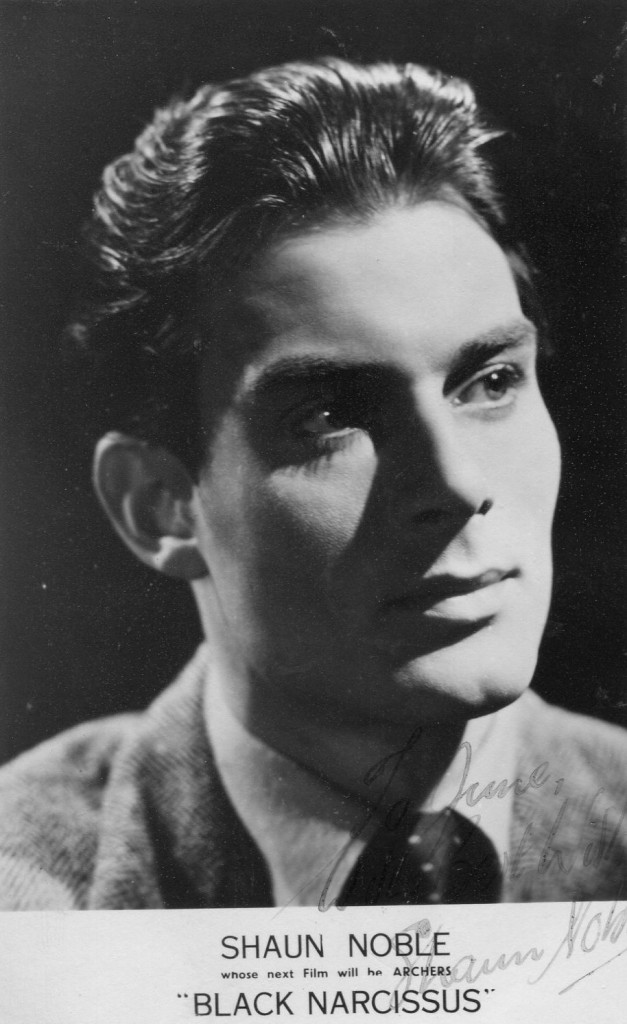
Shaun Noble was born on June 1, 1921 in Dun Laoghaire, Eire. He was an actor, known forBlack Narcissus (1947), A Song for Tomorrow (1948) and The Voice Within (1945). He died in June 1999 in Kensington, London, England.
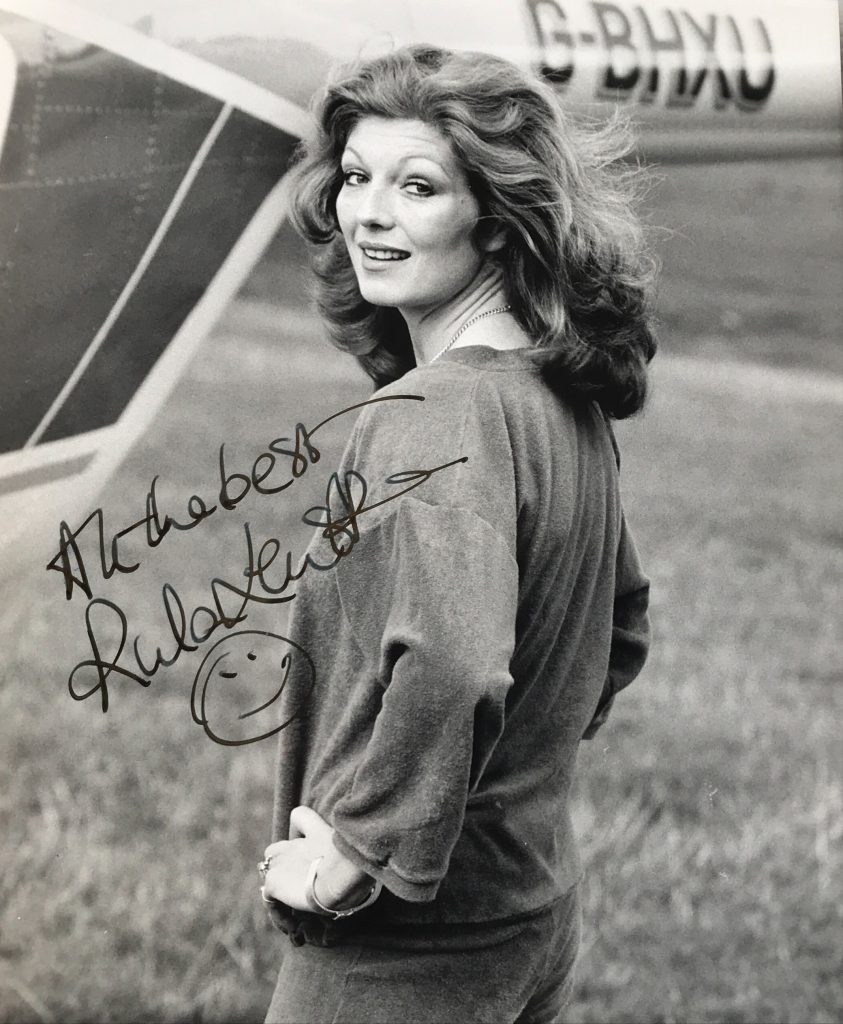
Rula Lenska was born on September 30, 1947 in St. Neots, Cambridgeshire, England as Countess Roza-Marie Leopoldnya Lubienska. She is an actress, known for Coronation Street (1960), Paradise Grove (2003) and Queen Kong (1976). She was previously married to Dennis Waterman and Brian Deacon.
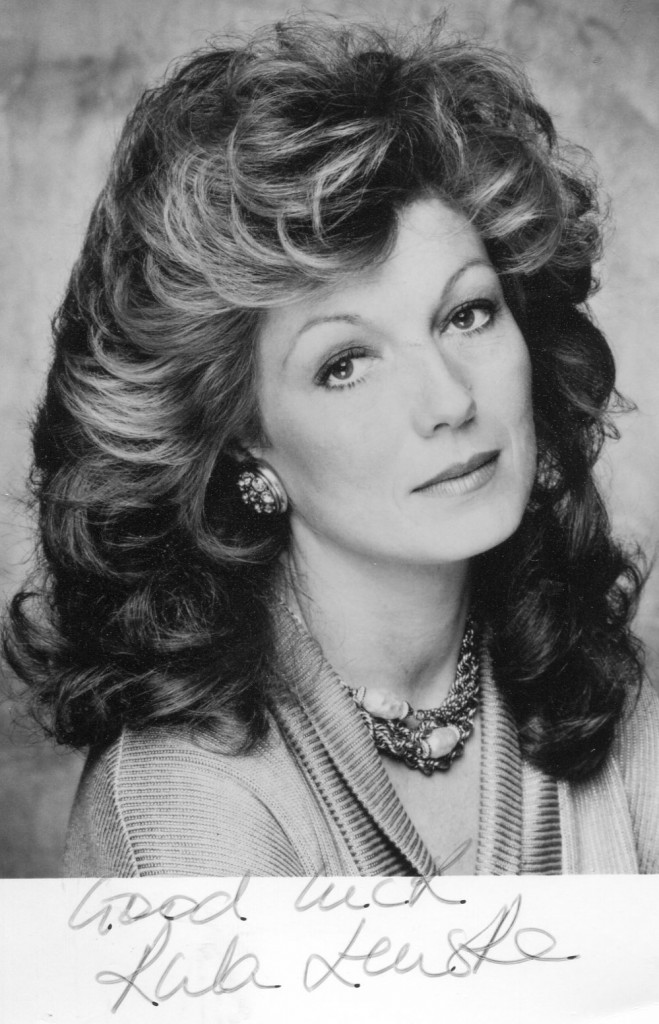
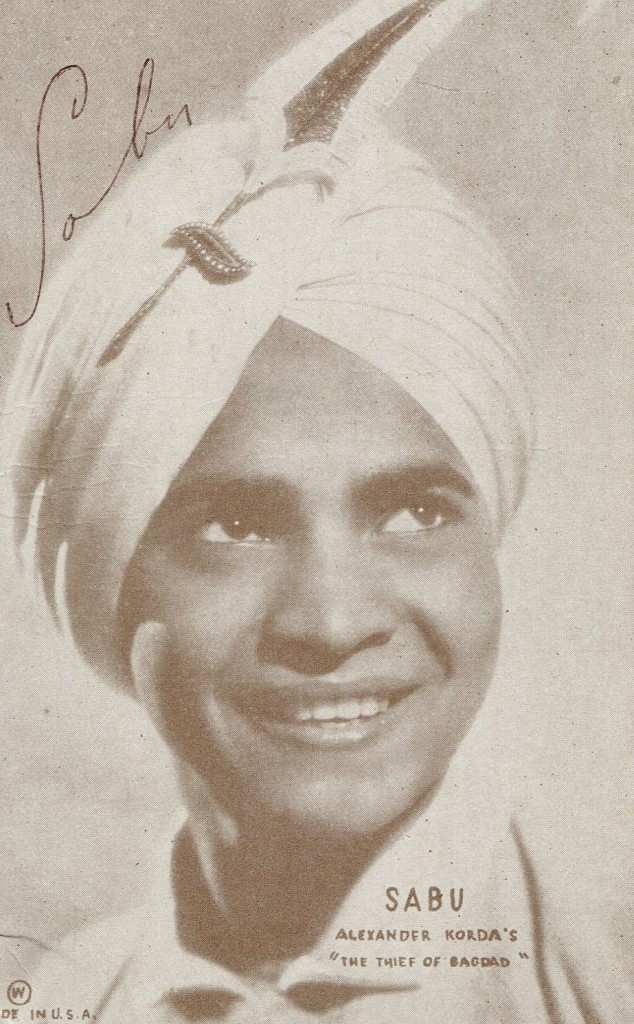
Gary Brumburgh’s entry:
Sabu Dastagir (or Selar Shaik Sabu, depending on your resource) was born on January 27, 1924, in the little town of Mysore, India, which is nestled in the jungles of Karapur. The son of an elephant driver (mahout) in service for the Maharajah of his town, the young stable boy learned responsibility early in life when, at age 9, his father died and Sabu immediately became the ward of the royal elephant stables. As with many Hollywood success stories, good timing and dumb luck allowed the impoverished youth a chance for a better life. By sheer chance the timid 12-year-old orphan was discovered by a British location crew while searching for a youth to play the title role (an elephant driver!) in their upcoming feature Elephant Boy (1937). Quite taken aback by his earnest looks, engaging naturalness and adaptability to wild animals and their natural habitat, the studio handed the boy a film career on a sterling silver platter and was placed under exclusive contract by the mogul Alexander Korda himself.
Sabu and his older brother (as guardian) were whisked away to England to complete the picture and became subsequent wards of the British government. They were given excellent schooling in the process and Sabu quickly learned the English language in preparation for his upcoming films. Elephant Boy (1937) was an unqualified hit and the young actor was promptly placed front and center once again in the film Drums (1938) surrounded by an impressive British cast that included Raymond Massey and Valerie Hobson. With the parallel success of the Tarzan jungle movies in America, Hollywood starting taking a keen look at this refreshingly new boy talent when he first arrived in the U.S. for a publicity tour of the film. Again, his second film was given rave reviews, proving that Sabu would not be just a one-hit wonder.
His third film for Korda is considered one of the great true classics. In the Arabian fantasy-adventure The Thief of Bagdad (1940), Sabu plays Abu the Thief and is not only surrounded by superb actors — notably June Duprez, John Justin, Rex Ingram (as the genie) and Conrad Veidt (as the evil Grand Vizier) — but exceptional writing and incredible special effects. Sabu’s name began stirring international ears. His last pairing with Korda was the excellent adaptation of Rudyard Kipling‘s classic book Jungle Book(1942) playing Mowgli, the boy raised by wolves, who must adapt to the ways of mankind after being returned to his mother. The movie was directed by Alexander’s brother Zoltan Korda.
Following this triumph, Sabu officially became the exotic commodity of Universal Pictures and he settled in America. Although initially rewarding monetarily, it proved to be undoing. Unfortunately (and too often typical), a haphazard assembly-line of empty-minded features were developed that hardly compared to the quality pictures in England under Korda. Saddled alongside the unexceptional Maria Montez and Jon Hall, his vehicles Arabian Nights (1942), White Savage (1943) and Cobra Woman (1944) were, for the most part, drivel but certainly did fit the bill as colorful, mindless entertainment.
Almost 20 years old by the time he became a citizen of the U.S. in 1944, he enlisted in the Army Air Force and earned WWII distinction in combat missions (Distinguished Service Cross, Air Medal, among others) as a tail gunner. By the time Sabu returned to Universal and filming, the charm of his youth had worn off and the boyish stereotype impossible to escape.
Post-war audiences developed new tastes, but Sabu had not choice but to trudge on with retreads of his former glory. Films such as Tangier (1946) again opposite Ms. Montez,Man-Eater of Kumaon (1948) and Song of India (1949) opposite lovely princess Gail Russell did little to advance his career. While filming the last-mentioned movie, Sabu met and married actress Marilyn Cooper who temporarily filled in for an ailing Ms. Russell on the set. The couple went on to have two children.
Sabu actually fared better back in England during the late 40s, starring in the crime drama The End of the River (1947) and appearing fourth-billed as a native general in the exquisitely photographed Black Narcissus (1947). Daring in subject matter, the film hadDeborah Kerr heading up a group of Anglican nuns who battle crude traditions, unexpected passions and stark raving madness while setting up a Himalayan order. By the mid-50s Sabu’s career was rapidly approaching extinction, seeking work wherever he could find it – in low-budget Europe productions, public appearances, etc. An attempt to conjure up a TV series for himself failed. His life was further aggravated by unpleasant civil and paternity suits brought about against him. His last two pictures were supporting roles in Rampage (1963), which starred Robert Mitchum, and A Tiger Walks (1964), a thoroughly routine Disney picture which was released posthumously.
Sabu died unexpectedly at age 39 of a heart attack on December 2, 1963, at his home in Southern California and was buried at Forest Lawn Cemetery in the Hollywood Hills. SonPaul Sabu developed into an accomplished songwriter and even formed a rock band called Sabu; daughter Jasmine Sabu, who died in 2001, was a noted horse trainer whose skill was utilized occasionally for films. Although he went the way of too many of our former stars, Sabu continues to enchant and excite newer generations with his unmatched athletic skills and magnetic charm in those early adventure fantasies of yesteryear.
– IMDb Mini Biography By: Gary Brumburgh / gr-home@pacbell.net
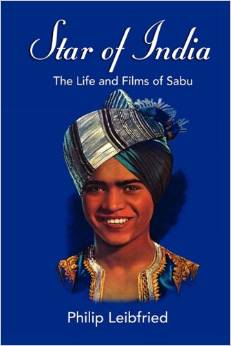
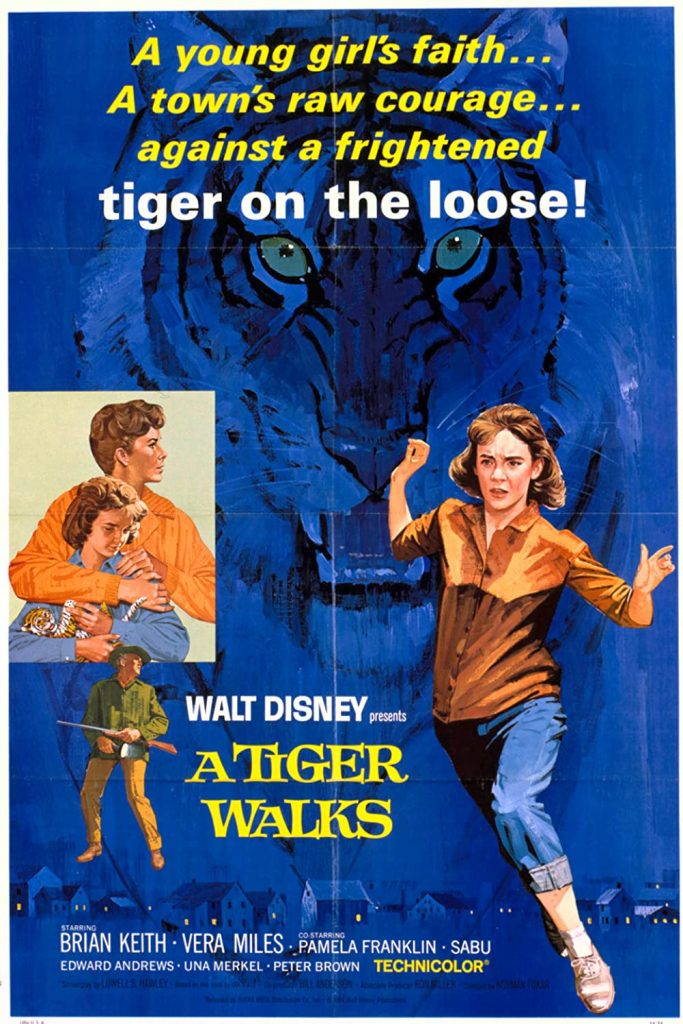
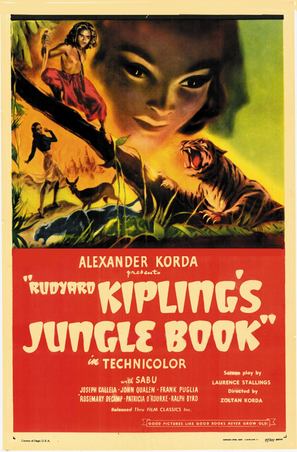
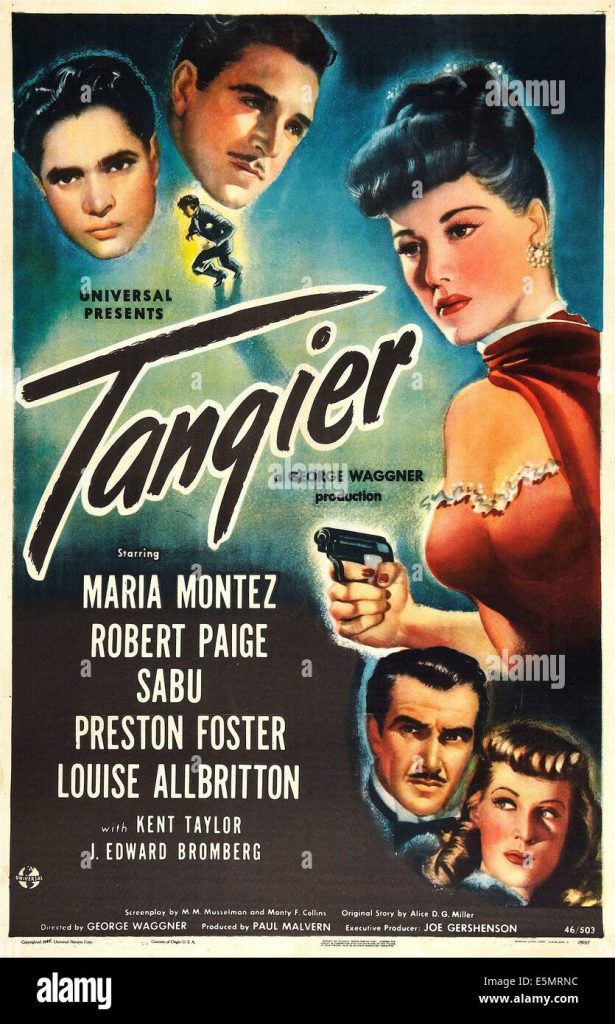
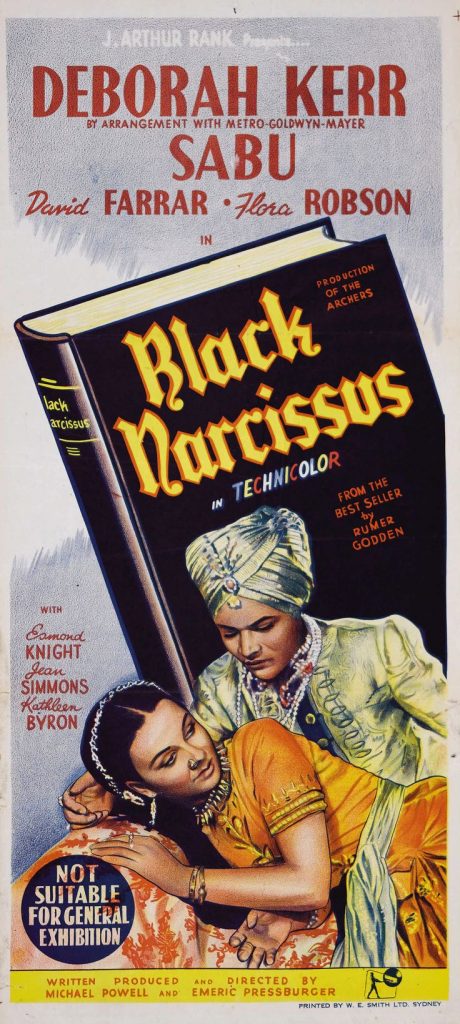
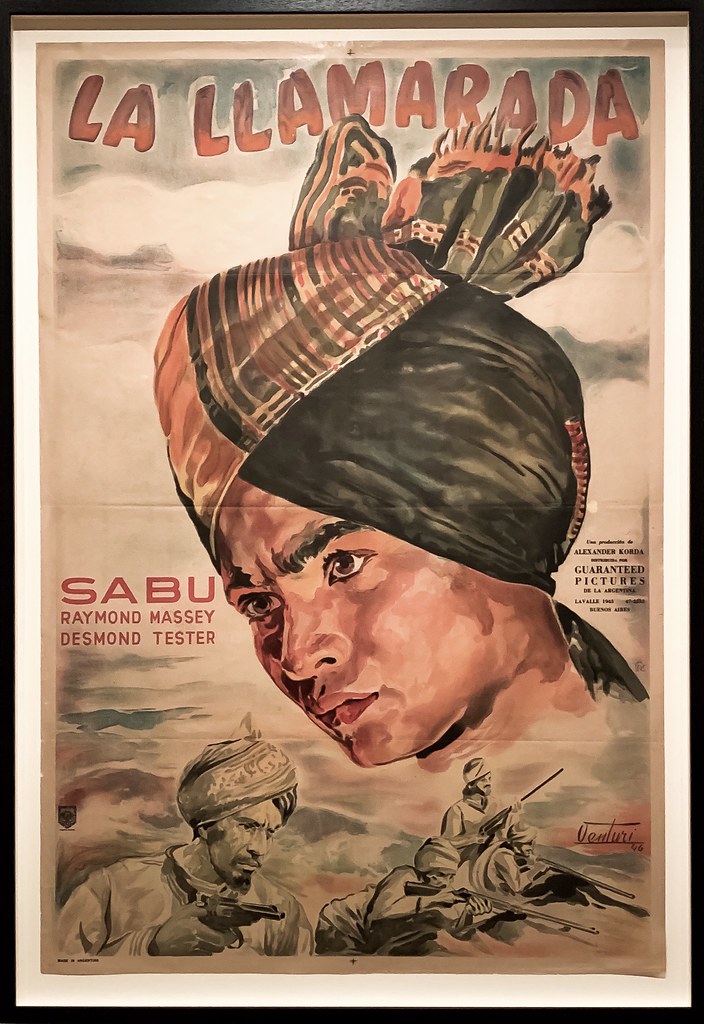
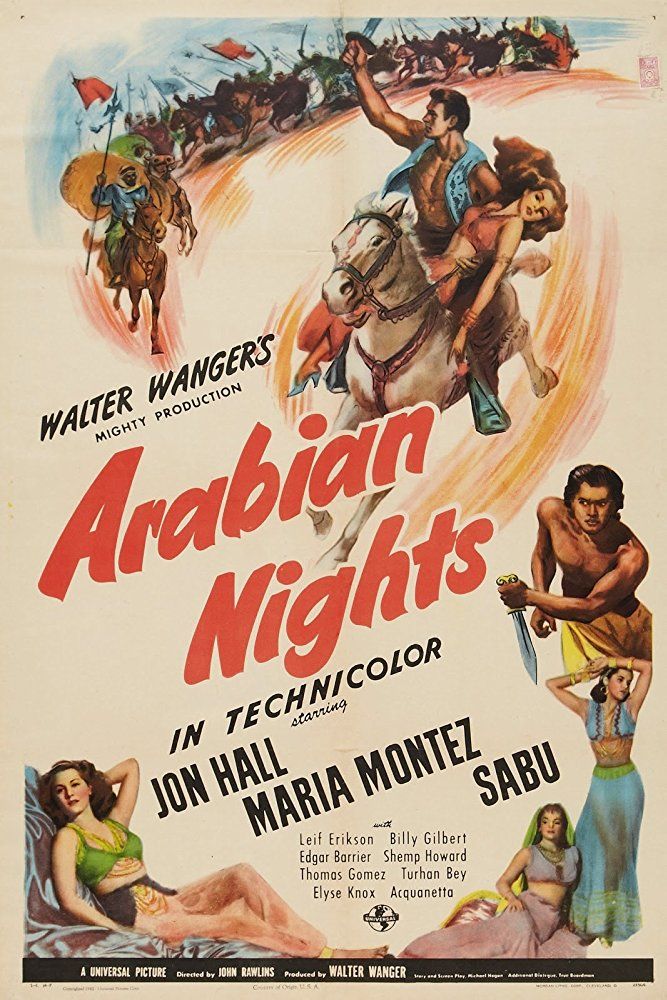
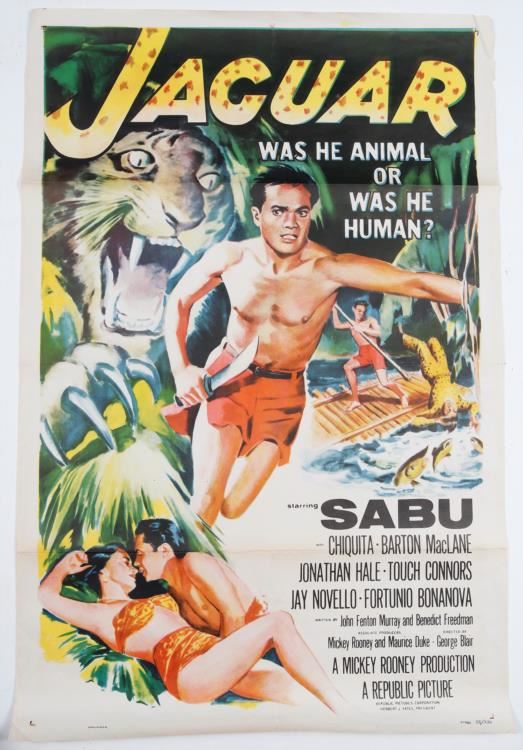
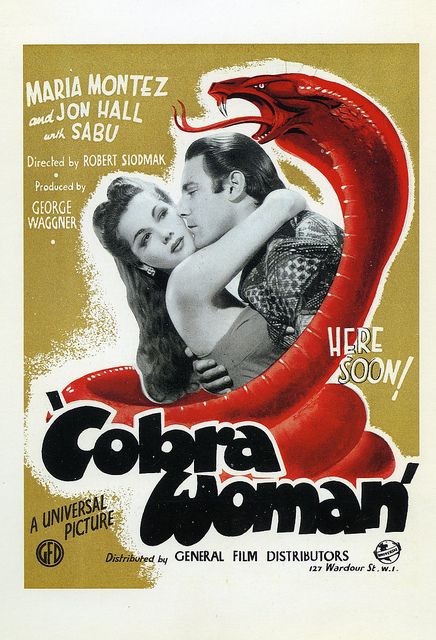
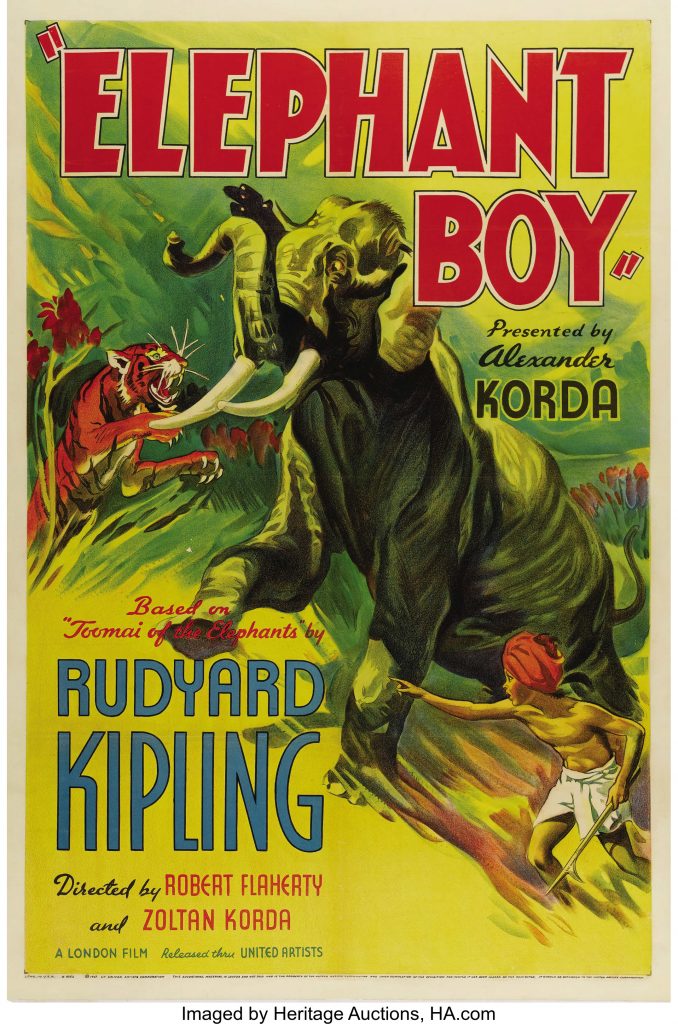
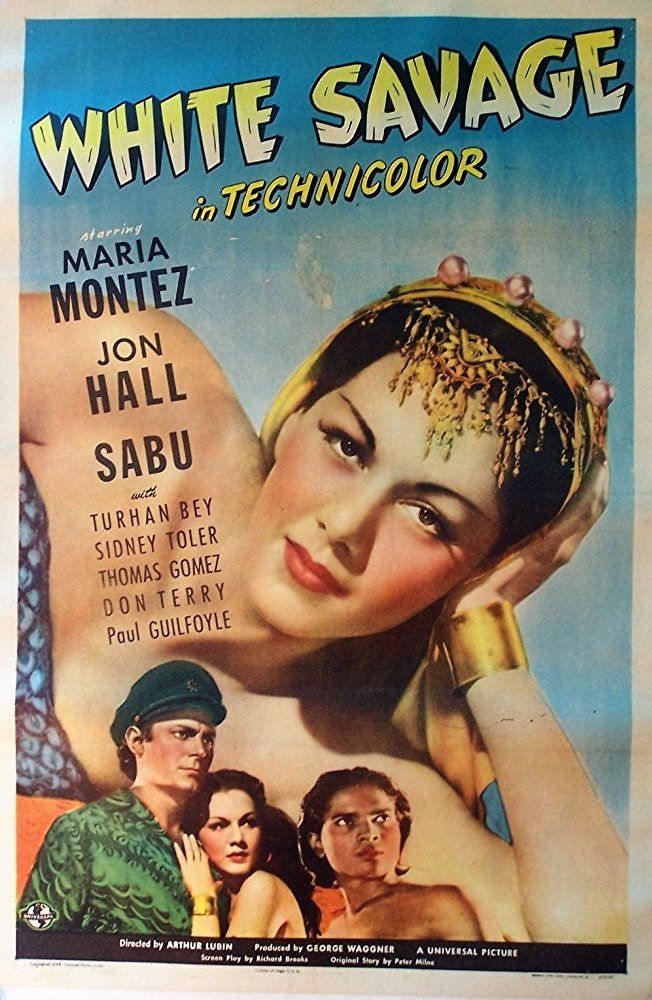
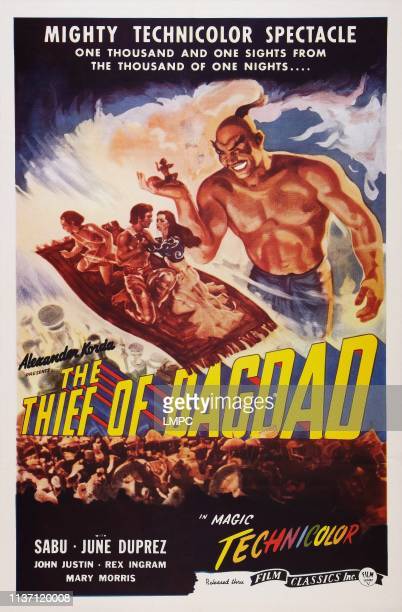
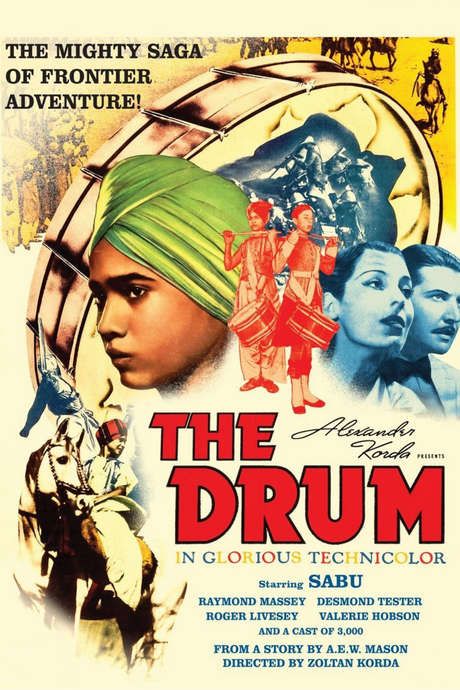
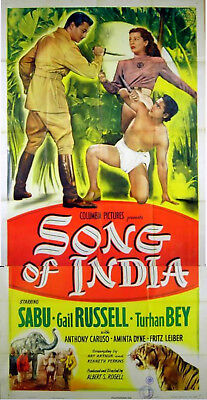
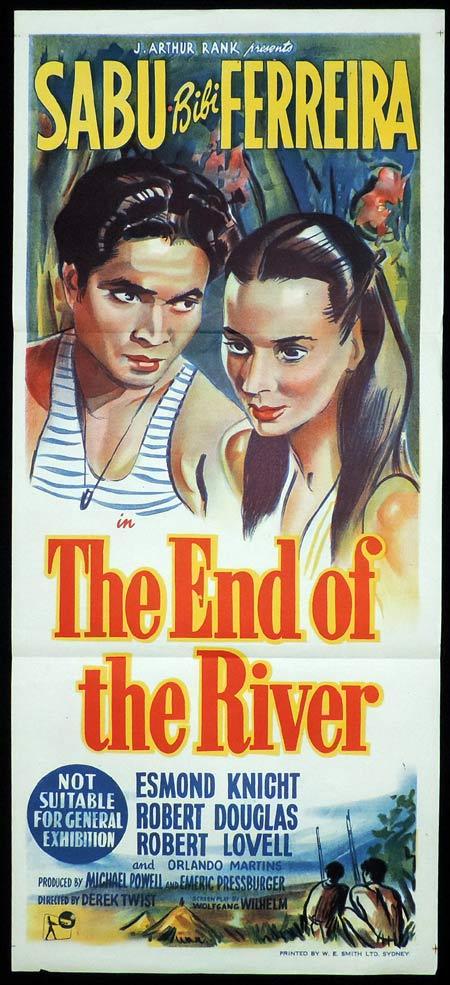

IMDB entry:
Ross Kemp was born on July 21, 1964 in Barking, Essex, England. His mother, Jean, was a hairdresser and his father, John, was a policeman with the Metropolitan Police force. He has a brother named Darren who is a documentary producer for the BBC.
Ross attended Shenfield High School, where he is remembered as an excellent athlete. He wanted to be an actor from a young age and went on to study drama at the Webber Douglas Academy. He has rarely been out of work since leaving the academy in 1985, appearing on stage, in films, on television and in various adverts.
His first credited television appearance was in 1986, playing Graham Lodsworth in “Emmerdale Farm” (now “Emmerdale”). His most famous role to date was his award-winning portrayal of hardman Grant Mitchell in the popular BBC series “EastEnders”.

“In an interview once, Rex Harrison referred to Alan Jay Lerner, the writer of ‘My Fair Lady’:’ I owe that man such a great deal’. Few actors are so in debt. ‘My Fair Lady’ cam to him when he was past middle age and transformed him from leading man to super-star. He had even been a formidable light comedian but a fairish run of poor films had kept this Rolls Royce of actors going in only low gear. He is a player of strong personal style, presumably achieved by much work but looking deceptively easy., the aristocratic elegant Englishman, with ingratiating hints of well-being and devilry. He can play with real bite. Noel Coward’s famous crack is not quite fair:’ If next to me, you were not the finest light-comedian in the world, you’d be good for only one thing: selling cars in Great Portland Street’. It suggests that behind Harrison’s smooth surface bravado, there is not very much – which is intriguingly possible; ut it also suggests superb self-confidence and it was that deepened into arrogance, which made him such a marvellous Higgins. To the extent that ‘My Fair Lady’ put him right to the forefront of actors, with roles to match, we all owe Alan Jay Lerner a great deal”. – David Shipman in “The Great Movie Stars – The International Years”. (1972).
TCM Overview:
Stagestruck from boyhood, suave British actor Rex Harrison joined the Liverpool Repertory Theatre at the age of 16, beginning a 66-year career that would culminate with his final performance on Broadway, May 11, 1990, three weeks prior to his death. Best known for his Tony- and Oscar-winning portrayal of Professor Henry Higgins in Alan Jay Lerner and Frederick Loewe’s “My Fair Lady”, he made his West End debut in “Getting George Married” (1930) and his Broadway debut in “Sweet Aloes” (1936), but it was a two year run on the London stage in Sir Terrence Rattigan’s “French Without Tears” that made him a star. Appearances in other sophisticated comedies, S N Behrman’s “No Time for Comedy” and Noel Coward’s “Design for Living” (both 1939), established him as what Coward himself called “the best light comedian in the world–after me.”
Harrison’s feature debut came in “The Great Game” (1930), and starring turns in movies like “Night Train to Munich”, (1940) “Major Barbara” (1941) and “Blithe Spirit” (1945) brought him to the attention of Hollywood, leading to a seven-year contract with 20th Century-Fox. He scored a major triumph as the King in “Anna and the King of Siam” (1946) and recorded another success with “The Ghost and Mrs. Muir” (1947), but subsequent films performed poorly at the box office, although Preston Sturges’ “Unfaithfully Yours” (1948) later acquired a cult status. Actor and studio parted company by mutual agreement, and Harrison returned to Broadway, earning a Tony for his 1948 performance as King Henry VIII in Maxwell Anderson’s “Anne of the Thousand Days”. Continued acclaim followed for his work in T S Eliot’s “The Cocktail Party” and John van Druten’s “Bell, Book and Candle” (both 1950). He directed and starred in “The Love of Four Colonels” (1953) and a revival of “Bell, Book and Candle” (1954) and helmed “Nina” (1955), all for the London stage. He made his Broadway directing debut with “The Bright One” (1958).
Despite having, in his own words, a vocal range of “one-and-a-half notes”, Harrison talked his way through the numbers of Lerner and Loewe’s “My Fair Lady” (1956), directed for the stage by Moss Hart, and became the darling of the critics, playing the show for two years in New York and another in London. His waspish professor of phonetics was “crisp, lean, complacent and condescending until at last a real flare of human emotions burns the egotism away,” wrote Brooks Atkinson in THE NEW YORK TIMES, and the success of “My Fair Lady” once again brought Harrison important film offers. He earned his first Oscar nomination for his portrayal of Julius Caesar in “Cleopatra” (1963), stealing the picture from his more famous co-stars, Elizabeth Taylor and Richard Burton. Reprising Higgins for the 1964 film version of “My Fair Lady” opposite Audrey Hepburn brought him a Best Actor Oscar and international fame, and “Dr. Dolittle” (1967) introduced him to a new generation of moviegoers as he shamelessly enjoyed himself playing the fanciful jungle gentleman who conversed with wildlife.
Harrison devoted most of his remaining years to his first love, the stage, taking parts in such diverse plays as Luigi Pirandello’s “Henry IV” and Rattigan’s “In Praise of Love” (both 1974). He co-starred with Claudette Colbert in a Broadway production of “The Kingfisher” (1978), and, after returning to Broadway in “My Fair Lady” (1981), garnered some of the best reviews of his career for a Broadway revival of “Heartbreak House” (1983), later captured for posterity in a 1985 Showtime cable special. Harrison portrayed Lord Grenham in London and Broadway productions of “Aren’t We All?” (1984-85) and Grand Duke Cyril Romanov in the NBC miniseries, “Anastasia: The Story of Anna” (1986). He last appeared on the London stage in “The Admirable Crichton” (1988) and bowed out in a Broadway revival of W Somerset Maugham’s “The Circle”, playing eight times a week just prior to his June 1990 death. The oft-married man dubbed ‘Sexy Rexy’ by Walter Winchell never wanted to be anything but an actor and never intended to retire. “He died with his boots on, no doubt about it,” said “The Circle” producer Elliot Martin.

































Despite being far from a household name, Mackenzie Crook continued to win over audiences on both sides of the Atlantic with his quirky comic turns in film and on television. Crook first became known in the U.K. as a stand-up comedian and popular television performer, most notably as the humorless and possibly deranged Gareth Keenan on Ricky Gervais and Stephen Merchant’s creation, “The Office” (BBC 2, 2001-03). As Ragetti, the formerly immortal pirate with an uncooperative wooden eyeball in “Pirates of the Caribbean: Curse of the Black Pearl” (2003) and its mega-successful sequel, “Pirates of the Caribbean: Dead Man’s Chest” (2006), Crook nearly stole every scene he was in. While a third appearance in the second “Pirates” film kept him working, acclaimed performances onstage in London and on Broadway in such productions as 2011’s “Jerusalem” garnered the actor a well deserved respectability. Exceptionally versatile and thoroughly committed to honing his craft, Crook’s unique attributes ensured him a robust career in virtually any medium he chose to work within.
Born Paul Crook in Maidstone, Kent, on Sept. 29, 1971, Crook wanted to become an actor, but finding the idea of drama school less than appealing, pursued a career in stand-up comedy as an alternate route into the business. He developed two popular characters – Mr. Bagwell, a heartless schoolteacher, and Charlie Cheese, a grimly desperate performer – and toured the U.K. comedy circuit for eight years. His talents caught the attention of the producers of the comedy series “The Eleven O’Clock Show” (BBC 4, 1998-2000), which also served as a launching pad for such talented English comic performers as Sascha Baron Cohen. In 2001, he parlayed his comic talents into another sketch show, “TV to Go” (BBC, 2001-02).
In 2001, he joined his fellow “Eleven O’ Clock Show” alum Ricky Gervais in his and Stephen Merchant’s acclaimed series “The Office,” where his “assistant to the regional manager” Gareth Keenan, with his insanely inflated self-importance and obsession with his lieutenant status in the Territorial Army, became one of the show’s most popular characters. Crook followed this with minor roles in several television series, as well as a small part as an usher in the film “Finding Neverland” (2004). Its star, Johnny Depp, had bonded with Crook during its making, and recommended the actor to play a small role as a comic relief pirate who serves under the spectral Captain Barbossa (Geoffrey Rush) in his next film, the Disney production “Pirates of the Caribbean: The Curse of the Black Pearl” (2003). That film went on to become a colossal worldwide hit, cementing Crook’s pop culture status by earning him an action figure in his character’s likeness.
Despite the success of “Pirates,” Crook continued to ply his trade in comedy on the small screen in his home country, most notably on the controversial animated series “Popetown” (BBC 3, 2005), about the long-suffering staff of a particularly troublesome pontiff. Crook also appeared as Launcelot Gobbo in Michael Radford’s film version of “The Merchant of Venice” (2004), starring Al Pacino and Jeremy Irons; as a weasel/henchman in Terry Gilliam’s ill-fated “The Brothers Grimm” (2005); and made an impression on critics and audiences alike as the fragile Billy Bibbitt in the 2004 West End stage production of “One Flew Over the Cuckoo’s Nest” opposite Christian Slater.
In 2006, Crook returned as Ragetti in “Pirates of the Caribbean: Dead Man’s Chest,” which proved even more of a box office juggernaut than its prequel. The character was revived for the visually stunning, but narratively muddy “Pirates of the Caribbean: At World’s End” (2007). He portrayed another less-than-savory character in the subterranean fable “City of Ember” (2008) then made his Broadway debut that same year in a revival of Chekhov’s “The Seagull.” Originally mounted at London’s Royal Court Theatre in 2007, the production also starred Peter Sarsgaard and Kristin Scott Thomas. Back in theaters, albeit with limited release in the U.S., Crook was seen in an adaptation of pulp writer Robert E. Howard’s swashbuckling puritan avenger “Solomon Kane” (2009). He soon returned to Broadway, where he received a 2011 Tony nomination for his supporting role in the drama “Jerusalem,” another play brought to New York after it (and Crook) garnered stunning reviews for its lengthy U.K. run. Other film work included a turn in the medieval action-drama “Ironclad” (2011) in addition to voicing the character of Ernie the smuggler in Steven Spielberg’s computer-animated adaptation of the beloved European comic book series, “The Adventures of Tintin” (2011).
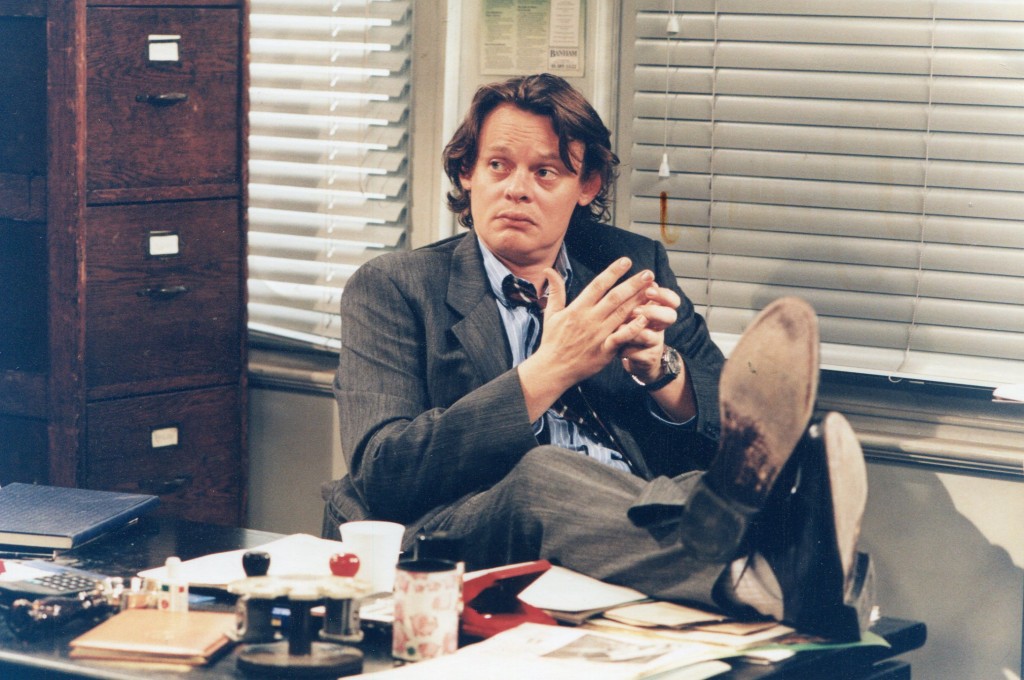
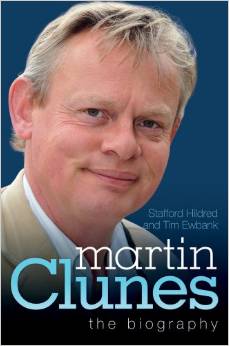
TCM overview:
Martin Clunes rose to the top of the U.K.’s comedy scene in the 1990s on the groundbreaking situation comedy “Men Behaving Badly” (ITV/BBC, 1992-99) and went on to equal his success as the title character of the network’s light drama “Doc Martin” (2004- ). A third-generation thespian, the London-born Clunes cut his teeth in the theater and on some short-lived sitcoms in the 1980s before beginning a running collaboration with comic mainstay Harry Enfield. In 1992, he and Enfield were paired on ITV’s comedy of ne’er-do-wells, “Men Behaving Badly,” and the show kicked into more ribald gear once picked up by the BBC in 1994, with Neil Morrissey taking over as his flatmate. It made Clunes a crossover star, expanding his CV with dramatic turns in telefilms such as “Goodbye, Mr. Chips” (ITV, 2002) and periodic supporting parts, as with his turn as small-town doctor in the sleeper indie hit “Saving Grace” (2002). The film spawned two spin-off telefilms prefiguring his character, Doc Martin, as a London physician simplifying his life; he would reinvent the character as an inveterate curmudgeon for ITV in 2004 in what would become the long-running series franchised into international phenomenon. He kept his hand in series comedy with the well-regarded sitcom “William and Mary” (ITV, 2003-05) and the less successful outing “Reggie Perrin” (BBC, 2009-2010). From behaving badly to being one of his country’s better regarded personalities, Clunes made a career spinning ratings gold for U.K. broadcasters.
He was born Alexander Martin Clunes on Nov. 28, 1961 in Wimbledon, London, U.K., the son of two generations British stage mainstays. His father, Alec Clunes, was a renowned actor of Shakespearean fare and British film, while his mother, Daphne, was an aficionado of the craft who encouraged Martin to follow in his father’s footsteps and later sat on the board of the London Academy of Music and Dramatic Art. The Clunes patriarch was often on the road for his work, and Martin and sister Amanda only found out years later that his father and mother were estranged when the former died of cancer in 1970. Martin was sent to boarding school at the Royal Russell School in Croydon, a traumatic period in which he suffered both physically and psychologically from the school’s draconian disciplinary codes. He honed his own burgeoning talents at The Arts Educational Schools in Chiswick, London, developing a sense of humor, he later said, to cope with school bullies. With the mentoring of his mother’s cousin Jeremy Brett, a prolific actor who later gained fame in the 1980s as Britain’s latest Sherlock Holmes, Martin decided try his hand at show business. Brett, he later said, even offered to pay for surgery to pin Clunes’ prominent ears back. With all this assistance, Clunes won his first paying job as a member of the repertory of the Mercury Theatre in Colchester and spent much of his early career as a stage actor.
He made his television debut in 1982 as a cocky young ally of the U.K.’s long-running sci-fi hero in a brief arc on “Dr. Who” (BBC, 1963-1989), and he would periodically return to the medium in ensuing years on short-lived situation comedies “No Place Like Home” (BBC, 1983) and “All at No. 20” (ITV, 1986-87). In 1987, he landed in auspicious company, doing a run of Shakespearean works for the English Shakespeare Company at London’s venerable Old Vic Theatre, and the next year snared a role opposite Edward Fox and Rex Harrison in a revival of the Brit comedy classic “The Admirable Crichton” at the Theatre Royal Haymarket. In 1990 he married fellow actor Lucy Aston. Television kept calling, often with series one-off roles, but that same year, Clunes kicked off what would become a prolific decade of television work when comedian Harry Enfield tapped him for the ensemble of his BBC sketch show, “Harry Enfield’s Television Programme” (1990-92) He and Enfield worked together again, alongside Jim Broadbent, on the short comedy series “Gone to the Dogs” for ITV in 1991, and again in the 1994 update of the sketch comedy series “Harry Enfield and Chums.” Also in 1991, he joined Hugh Laurie and Stephen Fry for the second season of their the dimwits-in-high-places comedy “Jeeves and Wooster” (ITV, 1990-93), with Clunes doing a four-episode turn as upper-class twit Cyril “Barmy” Fotheringay Phipps.
Meanwhile, Enfield was contacted by TV producer Beryl Vertue about starring in a new sitcom for ITV based on Simon Nye’s novel about beer-swilling slackers, Men Behaving Badly. Enfield, taking the role of Dermot, lured Clunes along to play his roommate Gary, a desk jockey who after work indulges a rampant Peter Pan-complex by way of boozing, vegetating, ogling and sundry hijinks. After the first six-episode season, however, Enfield felt uncomfortable in a sitcom format and Dermot was written out in favor of a new flatmate, Tony, played by Neil Morrissey. The show rated poorly during its second season and, with Enfield no longer its tentpole, ITV decided to axe it. The BBC picked it up and gave it a later-evening time slot, loosing writers to create a racier show, and “MBB” found a groove, drawing bigger audiences and a raft of awards, including a Best Comedy Actor BAFTA win for Clunes in 1996 and nomination in 1997. He veered into more dramatic fare off-season, starring in the miniseries “Demob” (1993), the tale of two onetime musical comedians (Clunes and Griff Rhys-Jones) who, after service in World War II, go to extraordinary lengths to reestablish their careers in a much-changed Britain.
In 1994, he garnered the lead in the feature “Staggered,” and when two directors dropped off the project, Clunes stepped up and took the helm of the project. In the film, he played a man waking up naked in Scotland and embarking on an odyssey to traverse the length of Britain to make it to his wedding in London. With his own marriage to XXX crumbling, Clunes began a relationship with “Staggered” producer, Philippa Braithwaite, with the couple marrying in 1997 in the wake of his and Aston’s divorce. By this time, he became much in-demand for TV movies and as a feature film supporting player, including a small turn in the Oscar-winning “Shakespeare In Love” (1998) and picked up a voiceover job as the title cartoon dog on the children’s series “Kipper” (ITV, 1997). After “Men Behaving Badly” shuttered in 1999, Braithwaite produced a little film that would give birth to another long-lived, multi-layered project for the both of them. “Saving Grace,” co-scripted by Scottish-born comedian Craig Ferguson, starred Brenda Blethyn as a woman whose recently deceased husband leaves her with nothing but her green thumb, while her inept gardener (Ferguson) helps her raise a crop of marijuana in a small Cornwall town. Clunes took third billing as Dr. Martin Bamford, the town doctor, buddy of Ferguson and partaker of the weed.
One of the bankrollers of the film, Sky Pictures, expressed interest in doing a pseudo spin-off of the show starring Clunes, initially a prequel concept telling the story of how Dr. Bamford came to reside in the remote town. Braithwaite and Clunes’ Buffalo Pictures put in motion “Doc Martin” (Sky TV, 2001), which saw Clunes rendering the character as a successful London obstetrician whose life falls apart when he discovers his wife has cheated on him, prompting him to seek a kind of walkabout in a Cornwall town he visited as a child and finding a more blue-collar groove among its eccentric, simpler folk. He kept up his bona fides as comic leading man in whacky-caper ITV movies such as “Hunting Venus” (1999), which Clunes also directed, reuniting him with “MBB” co-star Morrissey; “Dirty Tricks” (2000) and “The Booze Cruise” (2003). He also tapped into more dramatic work, playing the swaggering agent of the king in an updated film adaptation of “Lorna Doone” (BBC/A&E, 2000); the eerily charming 1940s serial killer John George Haigh in “A is for Acid” (ITV, 2002); and the titular, big-hearted boarding school teacher in a remake of “Goodbye, Mr. Chips.”
He reprised his Doc Martin character for Sky in 2003 in “Doc Martin and the Legend of the Cloutie,” which saw the doc scheming to keep the area around the village pristine by convincing some citified land developers that the land they purchased is haunted. That year, he returned to series television for ITV’s “William and Mary,” with him playing an amiable but unsatisfied undertaker embarking on a rollercoaster of a relationship with a professional midwife (Julie Graham). “William and Mary” ran three seasons, but even before it concluded, Clunes, Braithwaite and writer-producer Dominic Minghella had taken the Doc Martin franchise to another level. ITV commissioned it as a series, and they began tinkering with the concept. When it debuted in 2004, the sympathetic, well-meant Dr. Martin had (presumably for copyright reasons) a new surname, Ellingham, and a radically altered disposition, reintroduced to the quirky fishing village as a surly, antisocial London surgeon who, having developed an aversion to blood, seeks work as a general practitioner. Even more of a fish-out-of-water tale, the show became a monumental hit, often topping 10 million viewers per episode, as it followed his alienation from and grudging acceptance by the local townsfolk.
The show proved such a phenomenon, its concept and storylines were licensed for adaptations for Greek, German, Spanish and French television, while PBS aired the original in the States. Yet after the third season, and in the wake of his mother’s death in 2007, Clunes decided to take a break from acting. He penned a book bespeaking his love of dogs, A Dog’s Life, in 2008, which culled memories of his own family’s pets and delved deeper into the history of dogs. He would eventually semi-adapt the book for a documentary for ITV. In 2009, “Doc Martin” resumed production to great fanfare. Though it became a rare long-running drama in the U.K., Clunes supplemented his schedule in 2009 with Simon Nye’s ballyhooed remake of the BBC classic comedy “The Fall and Rise of Reginald Perrin” (1976-79), simply redubbed “Reggie Perrin.” He played the title character, a man in the midst of a midlife crisis who seeks respite in fantasy and plots to fake his own death. Though not well-rated, the show lasted two seasons on the BBC.
By Matthew Grimm
Anyone who knows me are aware that I am a bit of a movie buff. Over the past few years I have been collecting signed photographs of my favourite actors. Since I like movies so much there are many actors whose work I like.